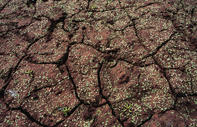The Environmental Movement
The environmental movement - which grew out of the momentum it gained in the 1970s - has had to take as good as it gives, rolling with the punches from critics. In some respects, the movement is represented by clinical science on one side, radical activists on the other, and any number of shades in between.

Environmentalists have been labelled scaremongers and New Age doomsday predictors. Some have called environmentalism the new religion for atheists.
Although there are activists who follow their cause with religious zeal, the danger of interpreting environmentalism as a religion is this: it reduces the issues to those of a belief system rather than what, in this case, they really are - the findings of observable scientific fact.
Understanding Climate Change
Global warming is not a belief system that you choose to adopt if it suits your political view. Understanding climate change is an extremely complicated tangle, which scientists must try to unravel. Predicting where climate change will go in future is even more difficult.
More and more meteorological data is fed into increasingly powerful computers whose algorithms are tailored to simulate future climate in a warmer world.
These computer models are not going to predict how much snow will fall for the Winter Olympics or what the weather will be like for the Soccer World Cup. They will suggest the trends for different parts of the globe - and even the conservative estimates are worrying.
We now know that the Earth has experienced long slow changes in climate as well as abrupt shifts in the past. In the words of the United Nations Framework Convention on Climate Change: “The climate appears to have 'tipping points' that can send it into sharp lurches and rebounds.”
Although scientists are still analysing what happened during those earlier events, it's clear that an overstressed world with 6.3 billion people is a risky place to be carrying out uncontrolled experiments with the climate. Critics of climate change still exist, but they have retreated to the margins where fringe groups of sceptics are increasingly losing credibility.
By Leonie Joubert